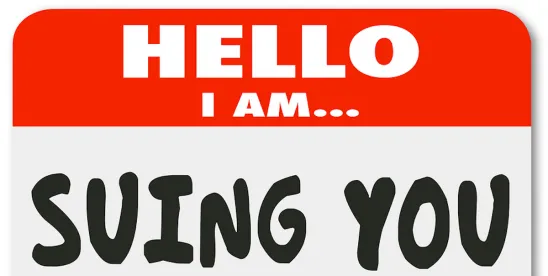Said it before. Will say it again– the rule of personal liability for TCPA violations undertaken for an employer is the most unfair in all of American jurisprudence.
Take the case of Matthews v. Senior Life Insurance Co., 2025 WL 1899984 (E.D. Va. July 9, 2025.)
There the Wolf and Perrong teamed up to sue SLIC in a TCPA class action over three allegedly unwanted and unsolicited telemarketing calls.
SLIC managed to eek out a win on a motion to dismiss earlier in the case, but the Wolf just came back stronger and named agent Daniel Swisa in the case personally.
According to the decision in Matthews, Swisa was apparently transferred a call after Plaintiff was asked qualifying questions from a fronter. That’s it.
SLIC then moved to dismiss the amended complaint but the court denied the motion– as Insurance license records with the Florida Department of Financial Services indicate that Swisa has a license to write policies for SLIC from August 27, 2024, to September 30, 2026, the court found Swisa was an employee of SLIC and acting at the direction of SLIC when he attempted to sell SLIC’s products and services.
So because of all of this: 1. SLIC is stuck in the case; and 2. Agent Swisa is being PERSONALLY SUED in a TCPA class action, apparently because he accepted a warm transfer.
Unclear to me whether Swisa was acting independently (i.e. as a lead buyer generating his own book) or whether we was captive and merely assigned the transfer. The allegations suggest there were multiple calls placed EXCLUSIVELY for SLIC, which leads me to believe Swisa may have just been assigned the call by SLIC and not been actively buying leads– but who knows.
Either way the lesson here is clear– insurance agents are at risk of being personally sued in TCPA class actions.




 />i
/>i
